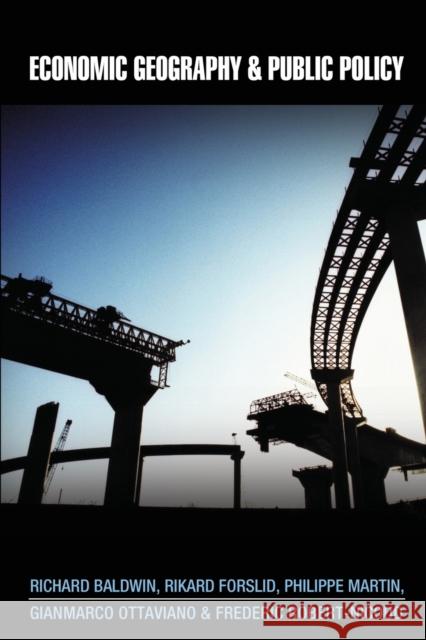Economic Geography and Public Policy » książka
Economic Geography and Public Policy
ISBN-13: 9780691123110 / Angielski / Miękka / 2005 / 487 str.
Research on the spatial aspects of economic activity has flourished over the past decade due to the emergence of new theory, new data, and an intense interest on the part of policymakers, especially in Europe but increasingly in North America and elsewhere as well. However, these efforts--collectively known as the "new economic geography"--have devoted little attention to the policy implications of the new theory.
Economic Geography and Public Policy fills the gap by illustrating many new policy insights economic geography models can offer to the realm of theoretical policy analysis. Focusing primarily on trade policy, tax policy, and regional policy, Richard Baldwin and coauthors show how these models can be used to make sense of real-world situations. The book not only provides much fresh analysis but also synthesizes insights from the existing literature.
The authors begin by presenting and analyzing the widest range of new economic geography models to date. From there they proceed to examine previously unaddressed welfare and policy issues including, in separate sections, trade policy (unilateral, reciprocal, and preferential), tax policy (agglomeration with taxes and public goods, tax competition and agglomeration), and regional policy (infrastructure policies and the political economy of regional subsidies). A well-organized, engaging narrative that progresses smoothly from fundamentals to more complex material, Economic Geography and Public Policy is essential reading for graduate students, researchers, and policymakers seeking new approaches to spatial policy issues.











